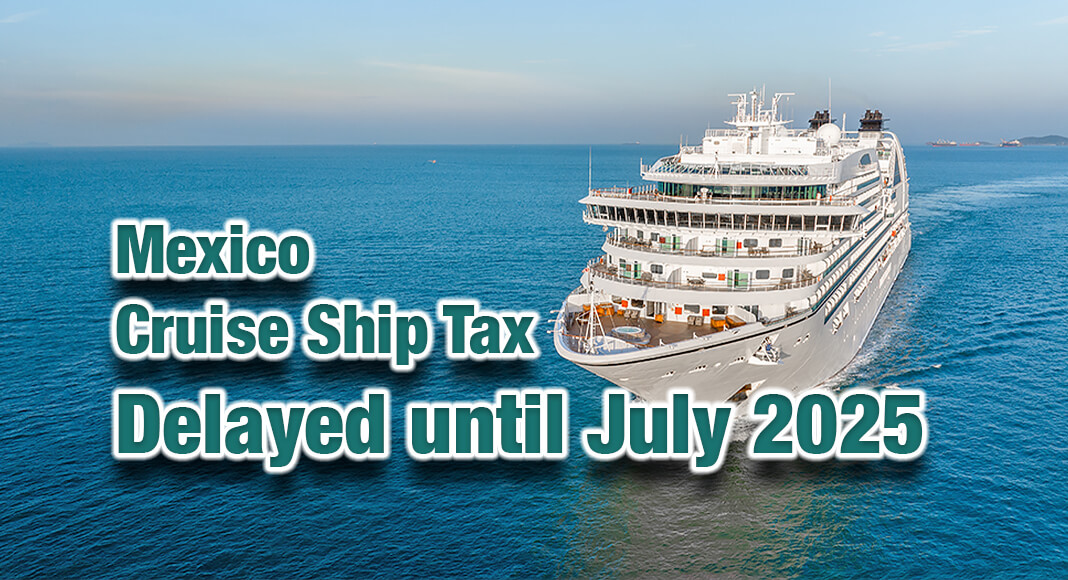
Texas Border Business
Florida-Caribbean Cruise Association – MIRAMAR, Florida – Following a meeting with Mexican government officials on Friday, the Florida-Caribbean Cruise Association (FCCA) acknowledges the federal government’s decision to delay the implementation of its new Federal Law of Rights tax on cruise passengers from January 1 until July 1, 2025. While the proposed postponement provides a temporary reprieve, FCCA stresses that more comprehensive measures are required to address broader concerns about the tax’s devastating impact on cruise tourism, Mexico’s economy, and the livelihoods of its coastal communities.
The tax, set to take effect after the delay, would impose an additional charge of US$42 (860 Mexican pesos) per passenger in taxes and fees. This is a staggering 213% more than the average cost at Caribbean ports, raising serious questions about the competitiveness of Mexican destinations in the global cruise market.
The concept, for example, of a family of four visiting a Mexican cruise port having to pay an additional $168 in fees for just a few hours ashore, while tourists crossing the border by land who visit for seven days or less remain exempt from this tax, will have far reaching impacts. FCCA warns that placing such a burden on cruise tourists with minimal time actually spent in Mexico will deter visitors, alter cruise itineraries, and create economic ripple effects in communities that heavily rely on cruise tourism.
According to the cruise industry association, even a modest 15% reduction in cruise ship calls to Mexican ports could negate the intended economic benefits of the tax. With over 10 million passengers expected in 2025, even a minimal decrease in cruise traffic would result in millions of dollars in lost revenue for local businesses, tours, and services – offsetting or even surpassing the total tax revenue projected from the measure. Such outcomes could inflict significant harm on Mexico’s tourism-dependent communities, undermining the tax’s purpose.
“The impact of this tax on Mexican tourist destinations will be disastrous,” stated the Mexican Association of Cruises. “If implemented, we expect to see a progressive drop in arrivals, which will significantly affect employment for taxi drivers, tour guides, artisans, waiters, restaurateurs, craft store owners, pharmacies, and more. This also impacts artisanal suppliers from regions like Chiapas, Guerrero, Oaxaca, Sinaloa and others who support the ports where cruise ships dock. Less income means fewer jobs and lower tax revenues for the government. Mexico will lose its competitiveness, becoming one of the most expensive cruise destinations in the world.”
Michele Paige, CEO of FCCA, emphasized the importance of addressing long-term concerns despite the temporary delay. “We thank the Mexican government for listening to our concerns and proposing a delay in the implementation of the tax that will fall mainly on American citizens. However, the removal of the in-transit tax exemption – which was provided to our industry over a decade ago for valid reasons that still apply today – was done without our prior input and after the legislation was passed. It is ironic that until this law was abruptly announced the industry was looking to grow business in Mexico, and now the opposite will occur.”
She noted that the delayed communication from the Federal government “does not demonstrate an authentic commitment” to collaborate with an industry that has a long-standing history of meaningful economic development for the country. “We look forward to the opportunity to continue meaningful dialogue around a balanced solution that protects Mexico’s communities, supports its vibrant tourism industry, and ensures the affordability of cruise travel for our guests,” she added. “We also thank the many other destination partners we have across Central America and the Caribbean who have already reached out to our member lines and invited them to relocate itineraries to their jurisdictions with open arms.”
About Florida-Caribbean Cruise Association (FCCA)
Created in 1972, FCCA is a not-for-profit trade organization that represents the mutual interests of the cruise industry and destinations’ private and public sectors. By building bilateral relationships with cruise tourism stakeholders and providing them a forum to work with executives from its Member Lines, FCCA fosters bilateral success for all parties. For more information, visit F-CCA.com and @FCCAupdates on Facebook, Instagram, LinkedIn and X.
Information Source: Florida-Caribbean Cruise Association: Press Release














